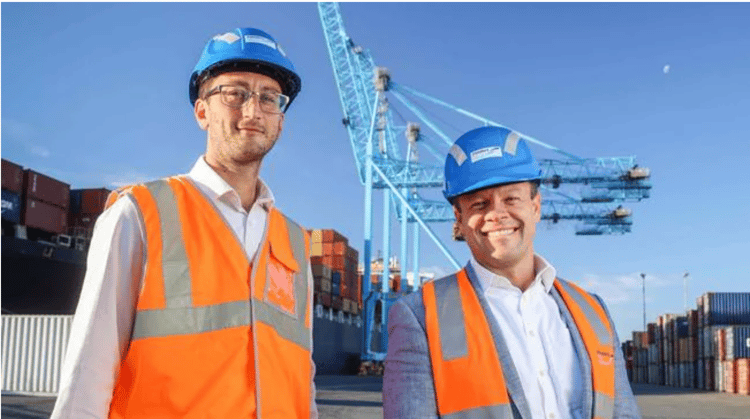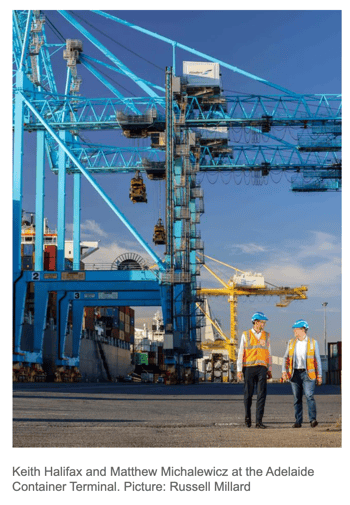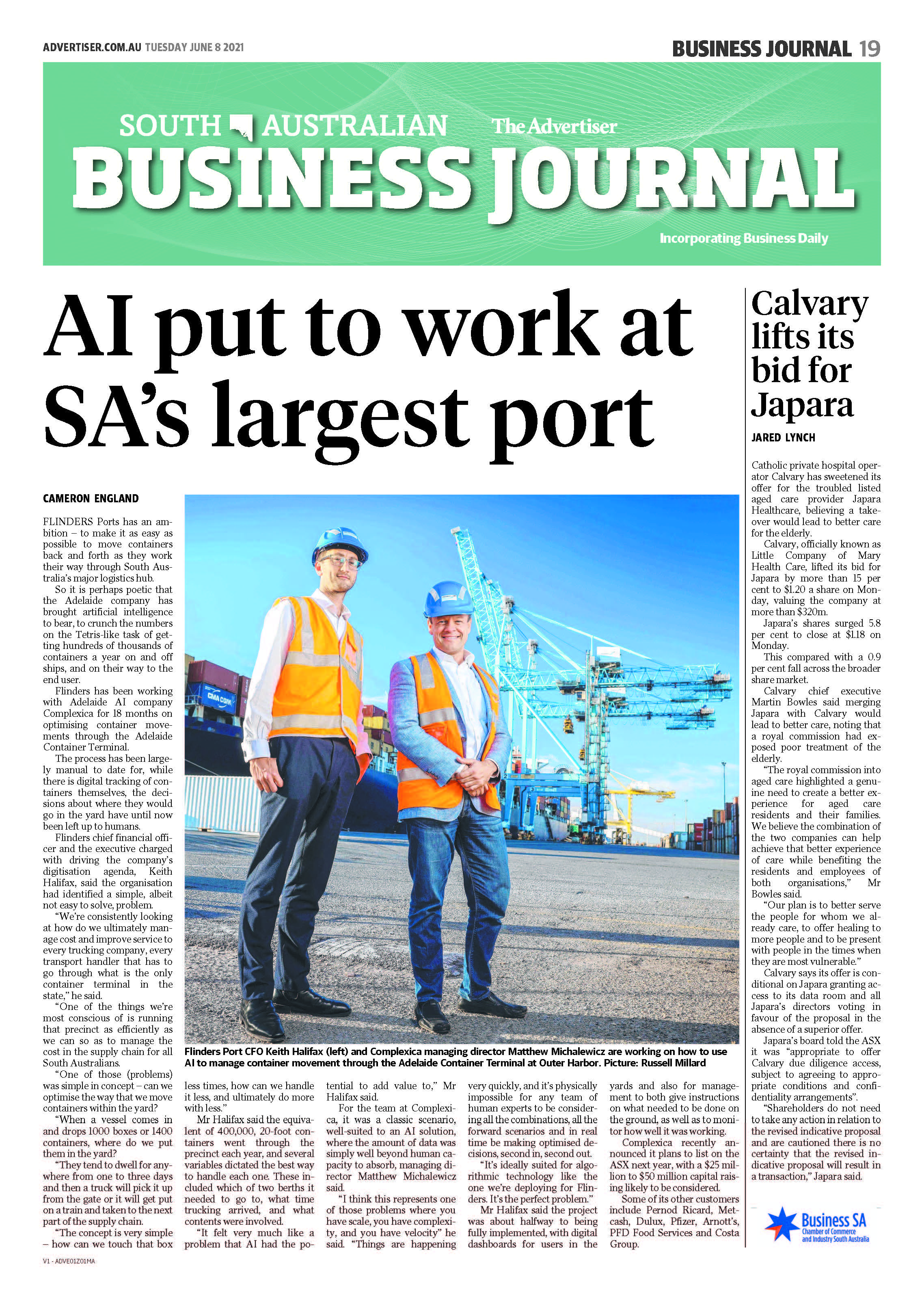Flinders Ports has an ambition - to do as little work as humanly possible moving containers back and forth as they make their way through South Australia’s major logistics hub. So it’s perhaps poetic that the Adelaide company has brought artificial intelligence to bear, to crunch the numbers on the Tetris-like task of getting hundreds of thousands of containers per year on and off ships, and on their way to the end user. Flinders has been working with Adelaide AI company Complexica for the past 18 months on optimising container movements through the Adelaide Container Terminal. The process has been largely manual to date, with the decisions about where containers would go in the yard being been left up to humans.

 Flinders' chief financial officer and the executive charged with driving the company’s digitisation agenda, Keith Halifax, said the organisation had identified a simple, albeit not easy to solve, problem. Mr Halifax said the equivalent of 400,000, 20 foot containers went through the precinct each year, and several variables dictated the best way to handle each one through the yard. These included for example which of two berths it needed to go to, what time trucking arrived, and what contents were involved.
Flinders' chief financial officer and the executive charged with driving the company’s digitisation agenda, Keith Halifax, said the organisation had identified a simple, albeit not easy to solve, problem. Mr Halifax said the equivalent of 400,000, 20 foot containers went through the precinct each year, and several variables dictated the best way to handle each one through the yard. These included for example which of two berths it needed to go to, what time trucking arrived, and what contents were involved.
“It felt very much like a problem that AI had the potential to add value to,’’ Mr Halifax said.
For the team at Complexica, it was a classic scenario, well-suited to an AI solution, where the amount of data was simply well beyond human capacity to absorb, managing director Matthew Michalewicz said.
“I think this represents one of those problems where you have scale, you have complexity, and you have velocity. Things are happening very quickly, and it’s physically impossible for any team of human experts to be considering all the combinations, all the forward scenarios and in real time be making optimised decisions, second-in, second out. It’s ideally suited for algorithmic technology like the one we’re deploying for Flinders. It’s the perfect problem.’’
Mr Halifax said the project was about halfway to being fully implemented, with digital dashboards for users in the yards and also for management to both give instructions on what needed to be done on the ground, as well as to monitor how well it was working.
To read the full story, please visit: https://amp.theaustralian.com.au/business/flinders-ports-brings-artificial-intelligence-to-bear-on-the-container-conundrum/news-story/be3db389bc4380484dfaea360e539413




































